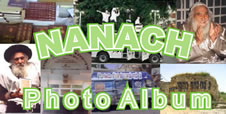Finding Hashem When We’re Low in Spirit
Likutei Halachos on Parshas Shoftim
Translated by Dov Grant
Devarim 17:8 “If something will be concealed from you in judgment…then arise and ascend to [the Temple]"
When someone wants to start the path of teshuvah/return, he must be baki (acquire proficiency) in halachah/law (related to: halichah/walking). He actually needs two kinds of bekius/proficiency, related to the concepts of baki be’ratzo and baki be’shov (going and returning), baki be’ayeil and baki be’nafik (entering and leaving). This is expressed in the verse: “If I should go up to Heaven – You [Hashem] are there; if I were to go to Hell – there You are”.
This means that a person must always attach himself to Hashem, whether he is on the spiritual ascent – or on the spiritual slide. This is the cardinal rule in the perfection of the path of teshuvah.
Now it’s true that the main thing in this bekius is simplicity and wholeheartedness. Nevertheless, this simplicity and wholeheartedness itself needs to be deep and nifla/ wondrous in order to effectively penetrate well the hearts of the general populace. Thus it states “If something will be concealed [yi’palei – related to nifla] from you in judgment…then arise and ascend to [the Temple]". The Temple was the main source of clarity in halachah, by way of the Great Sanhedrin, Cohanim and Elders that sat there. And the main point of knowledge of clear halachah and learning is to attain practical halachah, for “practice is the main thing, not expounding”. And so anyone that wished to search after the ways of Hashem, how to serve Him, needed to ascend to the Temple and accept the words of the Sages that sat there.
In our time, when the Temple lies in ruins owing to our many sins, the main tikkun/rectification is through the true tzaddikim, who are a reflection both of Moshe Rabbeinu and the Temple. For it is said regarding someone “that possesses da’as/understanding [true tzaddikim]” that “it is as if the Temple was rebuilt in his time”.
However, a person must suffer much scorn and humiliation before he merits drawing close to true tzaddikim. In fact, even afterwards this remains true. In actuality a person can suffer even more – from the anger and punctiliousness that his Rabbi may sometimes express towards him, for the person’s own good. It is then that the person merits baki in halachah, meaning the bekius of being able to always remain attached, whatever his spiritual standing, even if he is in the very lowest reaches of Hell. This kind of learning is very profound. One needs to greatly persevere, frequenting the study halls of people of truth that engage in this study, until he is able to fulfill this properly.
The main reason for the inordinate length of our exile is due to the fact that people do not try to draw close to true tzaddikim and learn from them the knowledge of this bekius. Thus, we all need to greatly seek and search after such a Rabbi in order to learn this bekius, for not every great Rabbi and leader merits knowing it.
Through our efforts, requests and search after the true tzaddik – and after undergoing the accompanying scorn and humiliation because of it – we will attain complete teshuvah, by way of our accepting the bekius in halachah from him.
Orach Chaim Hilchos Birkas HaPeiros 5:13 (according to Otzar HaYirah “Tzaddik” 49).
http://likuteihalachos.blogspot.com
ravdgrant@gmail.com |








|






